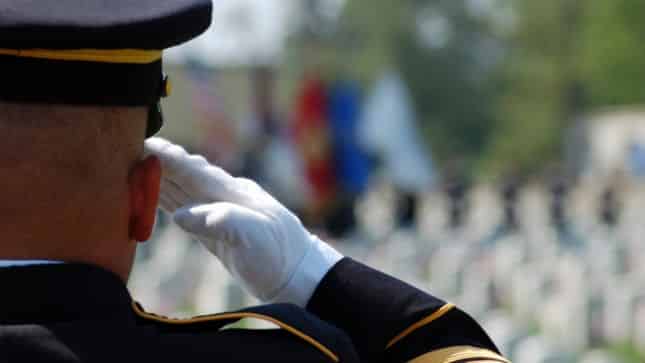 Despite cautioning from Psychology Today that military veterans are less warm and friendly than their civilian counterparts — experiencing a greater difficulty in getting along with friends and coworkers due to the “subtle lingering effects” of their military experience — post-9/11 veterans happily aren’t enduring the perceived effects of such stereotypical behavior. It’s civilians, rather, who might be on the verge of some begrudging feelings, going by the just-released “Profile of Post-9/11 Veterans: 2012” and “Profile of Veterans: 2013” prepared by the National Center for Veterans Analysis and Statistics (NCVAS). Veterans in the post-9/11 cohort, the NCVAS studies reveal, turn out to be younger, more likely to be insured, less likely to live in poverty, and earn higher personal incomes than non-veterans.
Despite cautioning from Psychology Today that military veterans are less warm and friendly than their civilian counterparts — experiencing a greater difficulty in getting along with friends and coworkers due to the “subtle lingering effects” of their military experience — post-9/11 veterans happily aren’t enduring the perceived effects of such stereotypical behavior. It’s civilians, rather, who might be on the verge of some begrudging feelings, going by the just-released “Profile of Post-9/11 Veterans: 2012” and “Profile of Veterans: 2013” prepared by the National Center for Veterans Analysis and Statistics (NCVAS). Veterans in the post-9/11 cohort, the NCVAS studies reveal, turn out to be younger, more likely to be insured, less likely to live in poverty, and earn higher personal incomes than non-veterans.
Comprising a current population of 2.6 million individuals that’s expected to increase 45% between 2012 and 2017, the post-9/11 veterans are the youngest cohort being served by the Department of Veterans Affairs (VA). About 80% are under age 44; the median age of male post-9/11 veterans in 2012 was 32 compared to 41 on the non-veteran side, while the median age of female post-9/11 veterans was 31 compared to 46. (As for the age of all other veterans outside of this grouping, however, in 2012 upwards of 80% were over the age of 55. According to the 2013 American Community Survey data, the median age of all male veterans was 64, while male non-veterans’ median age was 41.)
ATTENTION READERS
We See The World From All Sides and Want YOU To Be Fully InformedIn fact, intentional disinformation is a disgraceful scourge in media today. So to assuage any possible errant incorrect information posted herein, we strongly encourage you to seek corroboration from other non-VT sources before forming an educated opinion.
About VT - Policies & Disclosures - Comment Policy



